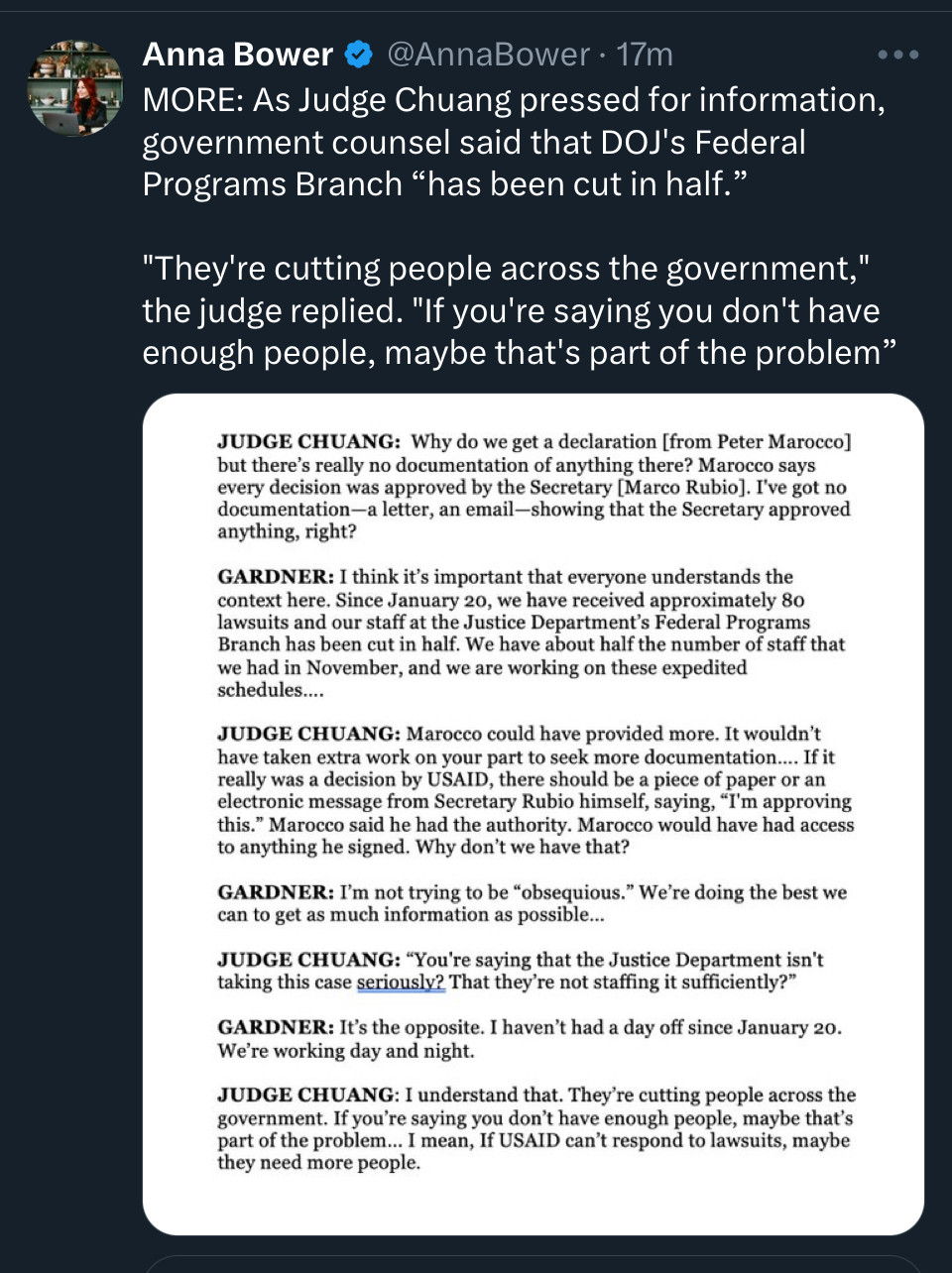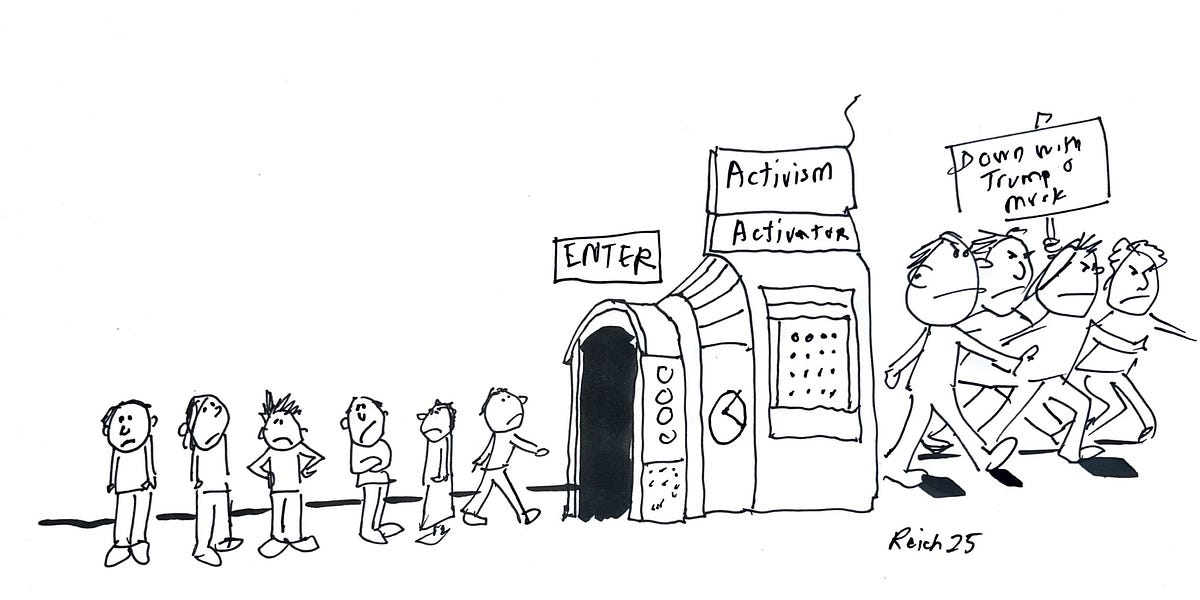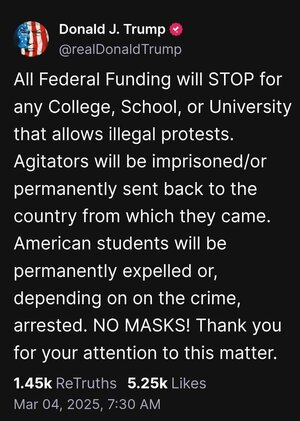The Constitution doesn't give power to the courts to enforce its decisions after a ruling. It gives that power to the Executive Branch. However, the definition of "judiciary" is that the judiciary interprets the law's meaning and intent, and issues rulings on laws in cases of Constitutionality or criminal, civil, or other legal disputes.
I don't see how anyone can say the Constitution does not give power to courts to do what is the very definition, purpose, and function of a "judiciary". If the Constitution does not empower the courts to adjudicate and interpret the law, then it gives that power to no one, especially not the President, and the courts are useless. That's obviously not the case, and a breach of the fundamental principle of separation of powers and three branches of government.
This whole argument that the Constitution does not give the judiciary power to do what is by definition what a judiciary exactly does, is just stupid.
I don't see how anyone can say the Constitution does not give power to courts to do what is the very definition, purpose, and function of a "judiciary". If the Constitution does not empower the courts to adjudicate and interpret the law, then it gives that power to no one, especially not the President, and the courts are useless. That's obviously not the case, and a breach of the fundamental principle of separation of powers and three branches of government.
This whole argument that the Constitution does not give the judiciary power to do what is by definition what a judiciary exactly does, is just stupid.















































